It’s the scruffiness that turns you off. It’s the realness that turns you on. ‘Berlin ist arm, aber sexy’ as the saying goes, which translates to ‘Berlin is poor but sexy’—and if there’s a neighborhood that best represents that idea, it’s Kreuzberg.
Throughout the years of self-shame and retrospection, Berlin is back to its senses. At peace with itself. At last. A unified German city and forever will be. An exuberant capital basking in the warmth of a promising spring.
I had long wanted to visit Berlin. So, when the first sign of spring came into view, I was off to “where the Kaiser swaggered, where Hitler strutted, where the malignant Stasi skulked!”, as the late travel writer Jan Morris once penned.
It wasn’t that I needed to swagger at Check-Point Charlie, or strut at the Brandenburg Gate, let alone skulk at Kottbusser Tor or in Görlitzer Park at night, but rather witness a season that whisks away all lingering ghosts of the past and the disquietude that comes along with the monuments they’ve left behind. For spring not only carries an air of inspiriting guilelessness, but also reverence. It’s when Berlin begins to write poems to its citizens as well as those who share the city’s spirit.
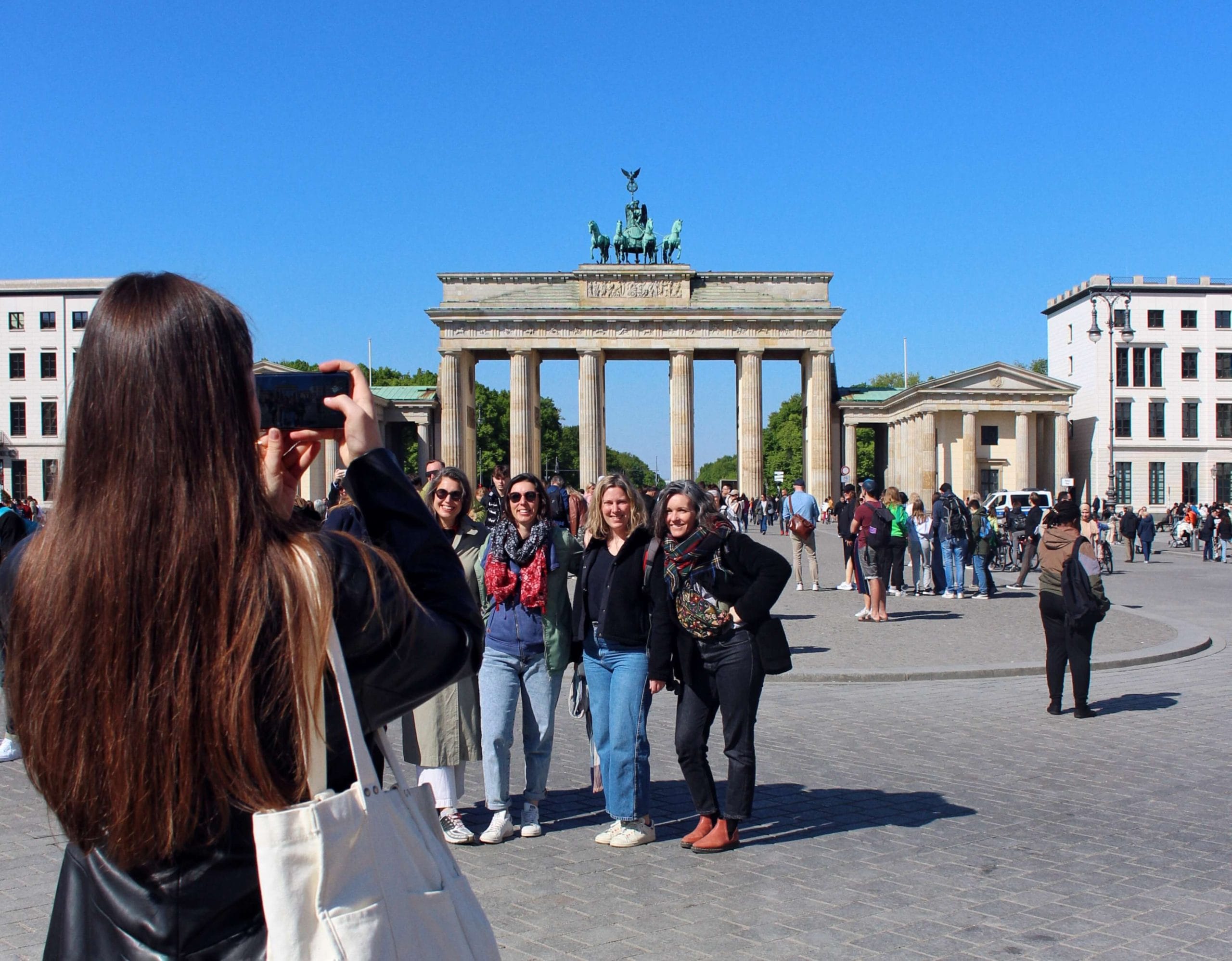
Attempting to be ‘ich bin ein Berliner’ in a span of three days (not a krapfen/jelly-doughnut or pfannkuchen/pancake), I prepared a long list of things to do while embracing the city both through its sights and the strangers that I’d meeting along the way.
As someone visiting for the first time, navigating the city can be daunting on top of finding an ideal base camp. Berlin is huge. A city amongst cities. It’s four times the size of New York, and about nine times the size of Paris.
Its psyche is as enigmatic as its weather. A friend once cautioned that Berlin is an impossible city, despite having lived there for many years. To understand it, is to know Berlin’s neighborhoods or boroughs. There are twelve. Each is of different breed and recondite by nature. To catch a glimpse of the city’s character at the very least, I reasoned that I shall have Berlin itself take me to where it wants me to be. For some unexplained reason, Kreuzberg or Xberg, as locals endearingly refer to them, called out to me.
KREUZBERG
There is a famous line about Kreuzberg that goes “Kreuzberger Nächte sind lang”, which loosely translates to “Nights in Kreuzberg are long.” A reference to a song in the 70’s by the group Gebrüder Blattschuss evoking a cultural experience among students, intellectuals and renegades, artists and outcasts, anti-capitalist and misfits who found refuge in one of the many pubs that remain open all night in Kreuzberg.
Having been known for decades for its dizzying alternative lifestyle, Kreuzberg is not only a melting pot of eclectics but also of continents – the old timers from the West and the new arrivals from the East.
While many of the former inhabitants have left the neighborhood pushed out by soaring rents, its immigrant population, mostly Turks, who were brought in as Gastarbeiter or guest workers in the 60s, as well as their descendants, stayed on, stubbornly confronting the bite of Kreuzberg’s gentrification. Never has their defiance and grievances ever been felt more fully, then on every May 1st. Together with other angry anti-establishment protestors, they storm the Kottbusser Tor often resulting in riots. Just a few blocks away in Görlitzer Park and along Oranienstraße, revelries take place. “Kreuzberger Nächte sind lang”, how appropriate I ruminated. Kreuzberg is exactly where I needed to be.
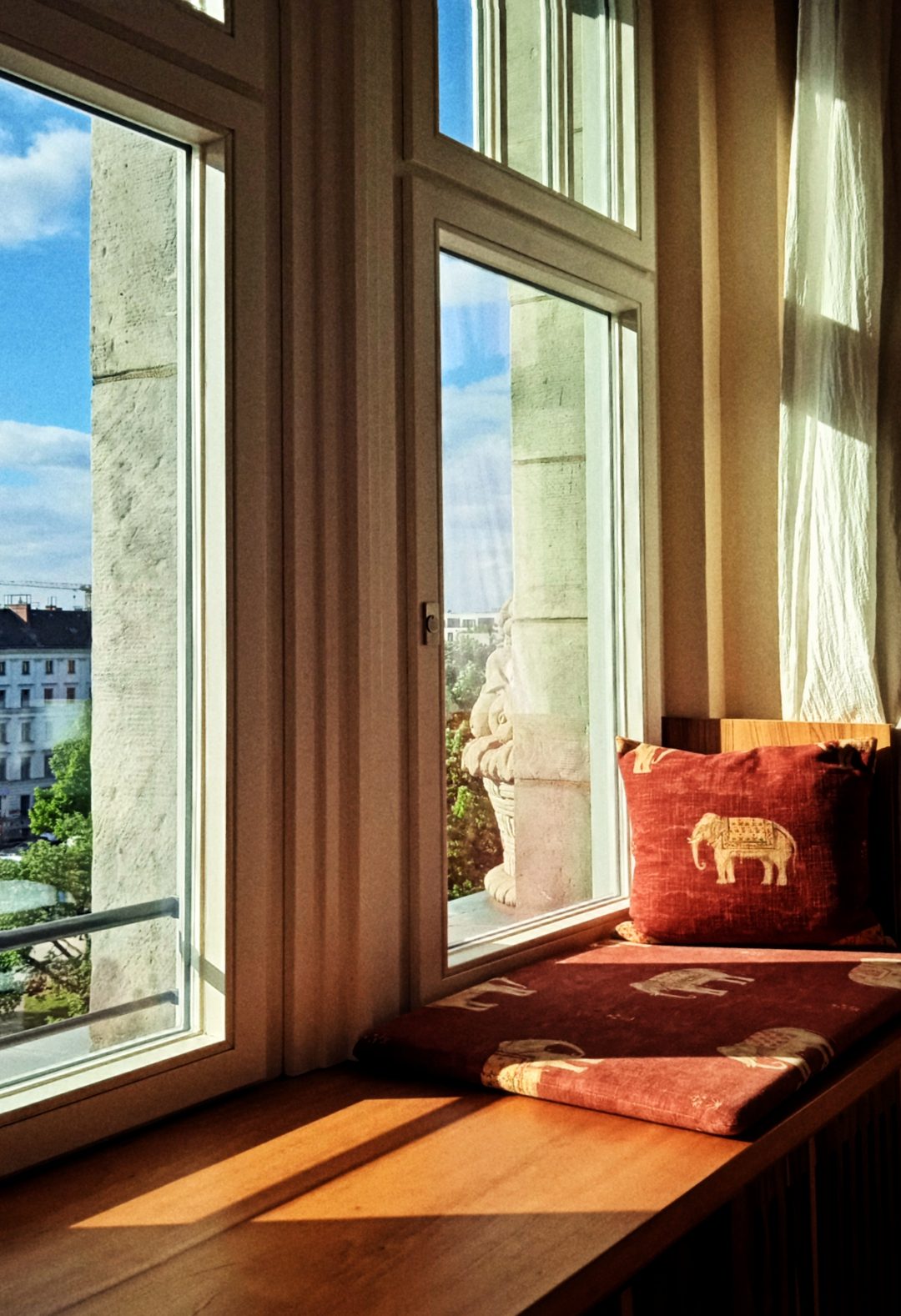
That cool April morning, I moved into my temporary residence at the Orania, a former 1912 office building with a cafe on the ground floor along Oranienstraße. The original cafe still stands, albeit bearing a new name after the building’s reopening in 2017 as a chic 41-room boutique hotel. The Breakfast Club, as it’s now called, is where one can swap a morning espresso for a martini or binge on a glass of champagne instead of a smoothie. Come midday, it turns into a cozy lounge. By night, a grand stagecraft for musical and opera recitals as well as a culinary masterclass.
If there’s an address in Kreuzberg that allows a traveler to be in the beating heart of the neighborhood, this is the place. So, when Jennifer Vogel, Orania’s custodian gave me the reassuring smile of approval and a big thumbs-up to boot, I knew I was in good company. A few floors up, I could spy on Berliners from the comfort of my room which overlooks a square. Amongst the line of trees seen from the distance, the TV tower above Alexanderplatz loomed with such smug as it pricked the city’s skyline. To my left, peering down and all the way straight along Oranienstraße, a thriving universe of cocktail bars, galleries, hip cafes, apartments, vintage shops, offices, kebabs, nightclubs and restaurants of all sorts; from Korean bulgogi to Mexican grill, Japanese ramen to Turkish döner, Indian and Uzbeki cuisine as well as angry chickens and Peking ducks.
Setting up a base here, as it turned out, was not entirely mine alone. Guests of the hotel favor its location and love its proximity to the kind of Berlin any wide-eyed traveler imagines – ‘Berlin ist arm, aber sexy’ (Berlin is poor but sexy) as an old expression goes. I overheard an American couple making remarks about Kreuzberg, describing it as Berlin sans the superficiality and glossy postcard image of a city. The sentiment may as well be true when you have international musicians and visiting artists come and stay at the Orania. Aside from rendering musical performances for the hotel guests, they too want to be in the center, where new ideas could spark at any time in this creative neighborhood, in addition to reacquainting with former artists pals and revisiting old flings and memories.
Somewhere in town, as tourists gushed out from coaches and flocked around Checkpoint Charlie, posed for photos at the Brandenburg Gate, surveyed the surviving section of The Wall or made a beeline to the Reichstag dome, I sauntered aimlessly around Kreuzberg and was happy to be away from the crowd.
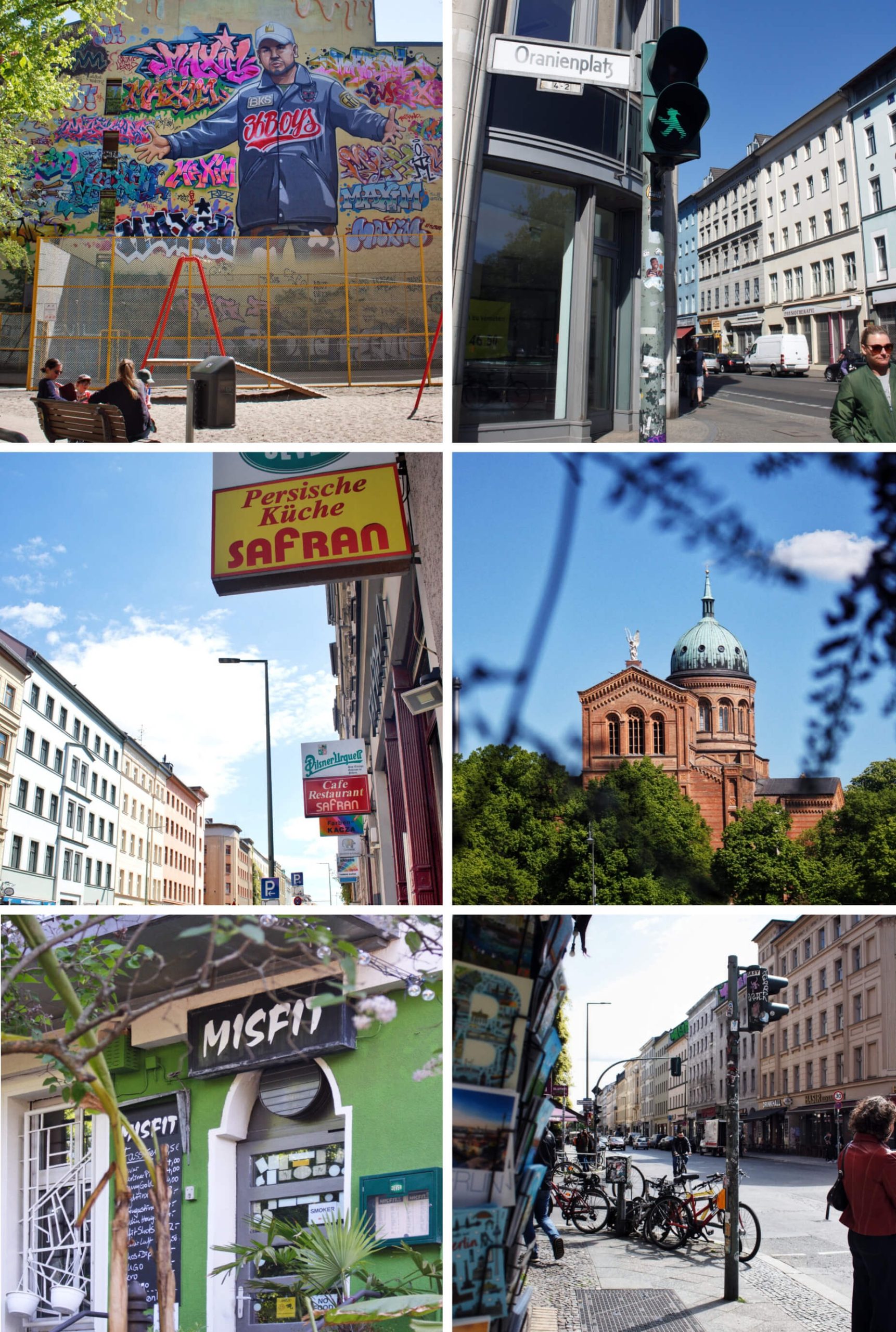
I walked past several bars brimming with youngsters garbed in black, greeting each other with an air of cool casualness. One turned to me, smiling, and said ‘Alles paletti’. I returned the greeting to which he responded ‘Geil’ and winked enthusiastically.
Across the street, a colony of elderly Turkish men sat cross-legged and sipped tea. Punks emerged from a corner späti clutching cans of Berliner pilsner and energy drinks as they gave high fives to a ballet of bubbly gay men about to enter the same shop. From time to time, I would wander inside a gallery drunk deep in jealousy venerating vintage furniture, a gilded lamp, a modern piece of artwork hanging on the wall and then repeat the same inside a ceramic and second-hand clothing store.
A few blocks away, graffiti greets the onlooker. Wafts of mouth-watering shawarma fills the air coalescing with Arabic hip-hop music as one approaches the Kotti station. Lost tourists ascend from the underground metro only to disappear after a few minutes and then reappear someplace else, perhaps in Mitte or Charlottenburg. I turned around Audre-Lorde-Straße, a street named after a Black American feminist-lesbian poet and erstwhile Kreuzberg resident, before popping by at Markthalle Neun to nosh on some bean cake from a Chinese teahouse.
On the north-western part of Kreuzberg, at Engelbecken Park, residents squatted on grass. Dog owners played with their mutts at the nearby Michaelkirchplatz. A vagrant stirred from his sleep and almost fell off his bench after being interrupted by uncontrolled giggles and the sporadic “Ich bin gleich soweit!” (I’m almost there! – literally, I’m coming! – contextually) streaming out of a makeshift outdoor tent.
My peripatetic stroll culminated along the banks of the Spree. Tourists aboard sightseeing boats glided along the surface. I raised my hand and waved emphatically looking foolish as the April breeze tossed my hair in all sorts of directions. I reached inside my knapsack and was pleased to feel the assurance of my umbrella ready to spring in to action.
PEKING DUCK
As any outsider would guess, Kreuzberg is a petri dish. A microcosm of organisms living tightly side by side, floating in tangle, never being but always becoming. It’s a social experiment to say the least – constantly evolving, adapting alongside with the zeitgeist of each generation. This is a ‘kiez’ or neighborhood that fosters a culture entirely different from the rest of Berlin. Some live more powerfully in the imagination, others become myths.
Like everything in Kreuzberg, where things are grown, cultured, invented and reinvented, it’s no longer a surprise to spot a 13th-century recipe from the Ming Dynasty getting a proper Kreuzberg-esque take from a learned hand. If you ask Philipp Vogel who runs the restaurant at Orania, you get the feeling that you are not only to partake in the joy of devouring, what is believed to be China’s ancient imperial dish, but also have a hand, in this case a mouth, in the whole Peking duck experiment and banquet experience.
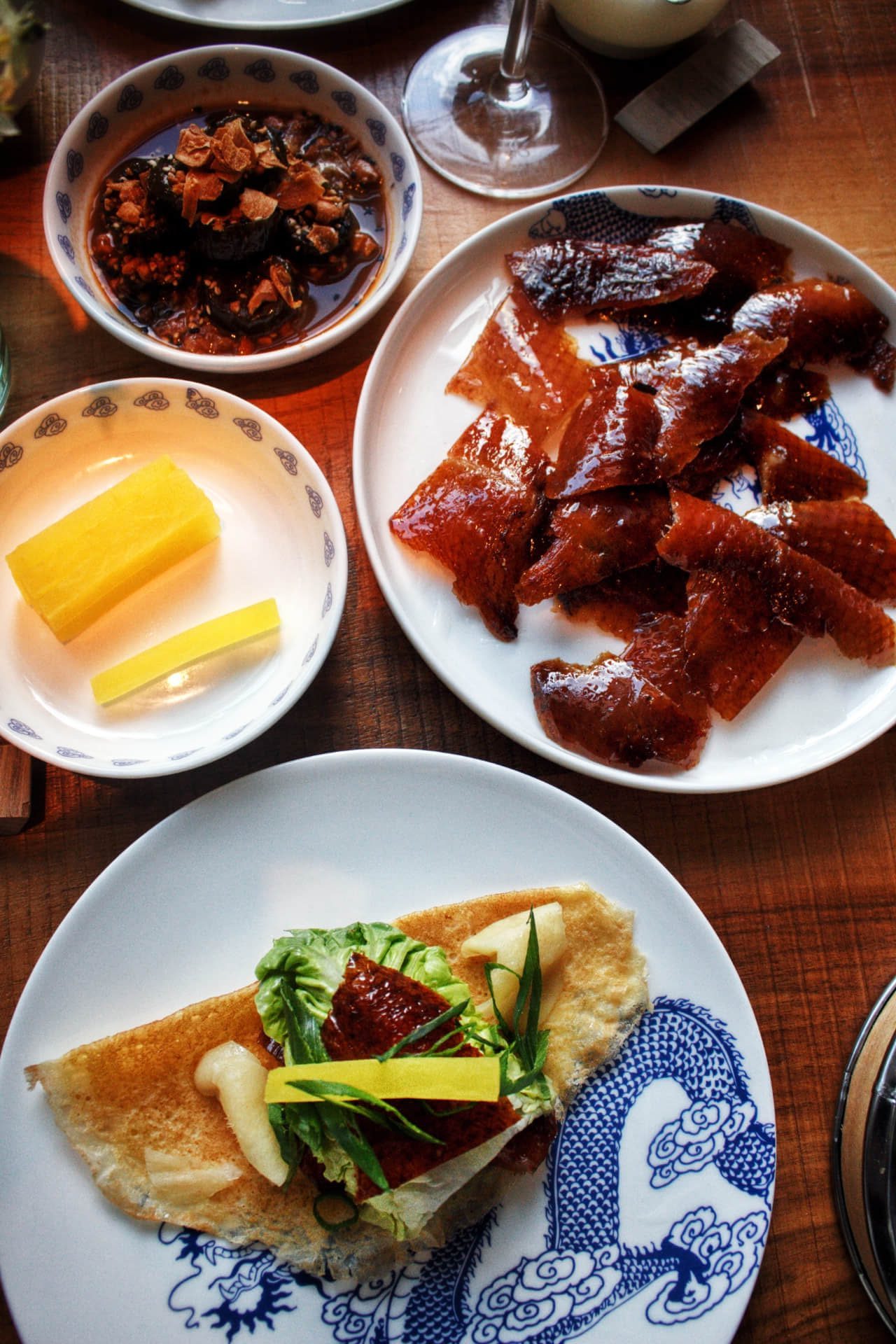
It begins with a humble dumpling floating in soulful broth. Followed by prized pieces of golden-brown skin delicately cut almost as thin as a petal. Crunchy at first bite only to melt like butter thereafter. Then comes the juicy breast meat, tender as dusk, served with pak choy and a rich pepper-seasoned sauce. Lastly, the comfort pulled drumstick meat and fried rice bringing the four-course ceremonial meal to a euphoric end. For 79 euros per person, a most extraordinary way to transport oneself to Asia without leaving Europe. But in Kreuzberg, one gets the sense of being in two worlds all at the same time.
Feeling full and content, like a Ming dynasty empress, I stepped outside and smelled the fresh evening air. On one of the park benches, there sat a solitary figure accompanied by what could look like a black case. A few seconds later, he took out his guitar from the case, carefully adjusted the strings and began to play. I instantly recognized Ben King’s ‘Stand by me’. Then a heartfelt Arabic ballad floated in the night air. Tender and true. People started to gather around, swaying gently to the music. The moment he knew he had everyone’s attention: the guitar man put on an endearing version of Reinhard Mey’s Über den Wolken (Under the Clouds).
For a moment, the uncertainties of the future – unemployment, social problems, national identity, and the woes of Kreuzberg gentrification, seemed far away. Nächte sind lang. The night is long and, in the background, the audience singing in unison.
🎶 Über den Wolken
Muss die Freiheit wohl grenzenlos sein
Alle Ängste, alle Sorgen
Sagt man
Blieben darunter verborgen
Und dann
Würde was uns groß und wichtig erscheint
Plötzlich nichtig und klein.
(Over the clouds, freedom must be borderless
All your fears and all your sorrows,
they say
Remained unseen underneath,
and then
Whatever seems big and important to us
Became vain and small.) 🎶
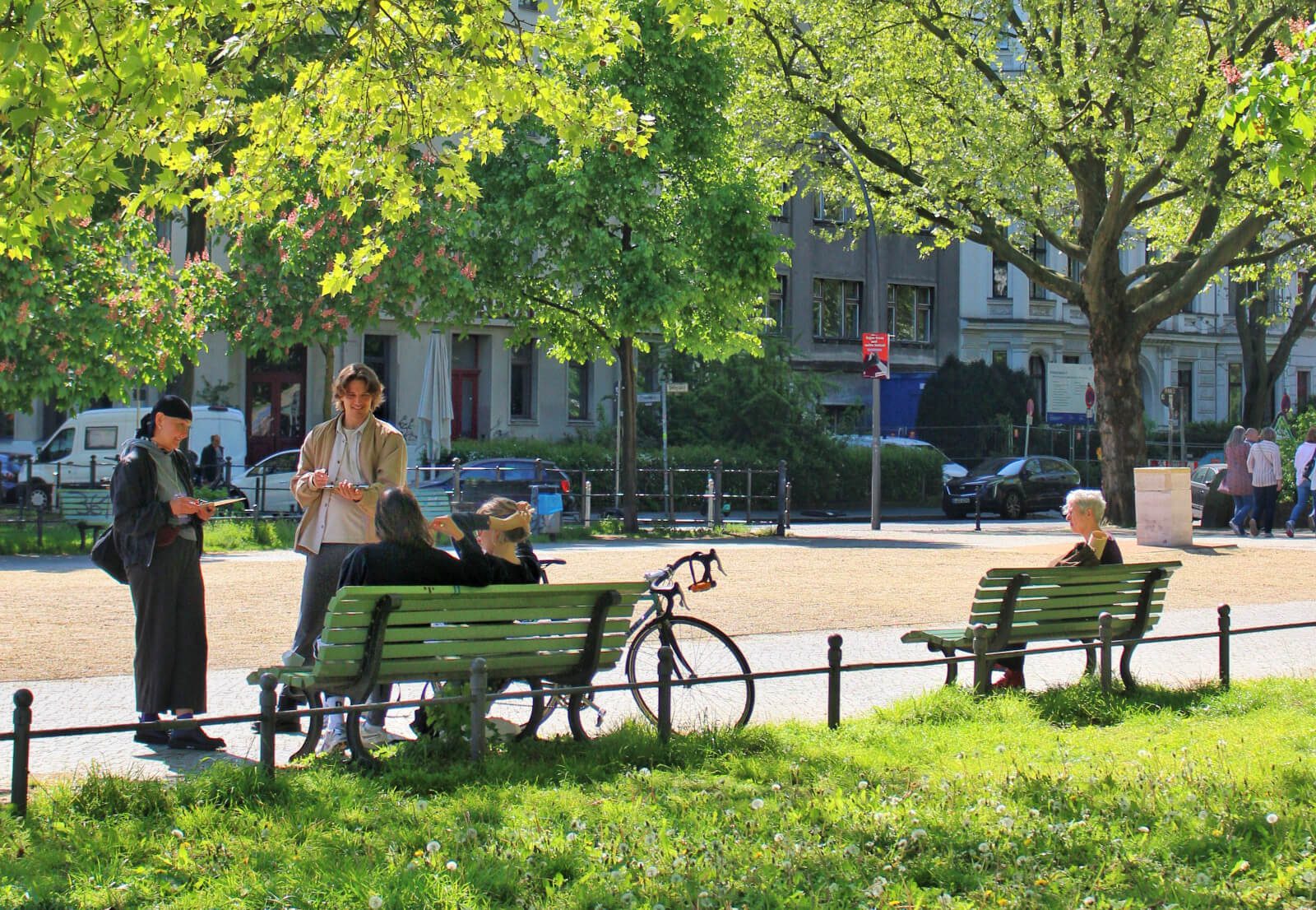
When was the last time you’ve visited Germany’s capital? Which sights and landmarks did you see? Are you planning to explore Kreuzberg, a multicultural district of Berlin on your next foray to the city? Love to find out and feel free to share your comments below. Alles palleti! 😉
BUTTER MY BAGUETTE
This website made of love strives to produce FREE CONTENT.
Help me tell more stories and keep this website free of any advertisement by supporting Flying Baguette in inspiring more people and connecting you with other cultures and communities around the globe. Donate a little or as much as you can afford to keep the magic of Flying Baguette going for years to come. Share your support through the icons below ⬇️
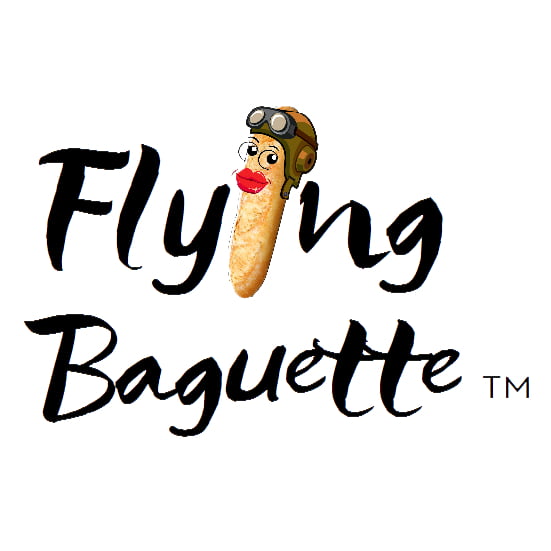



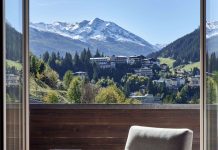
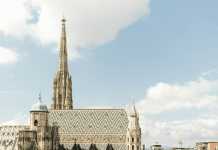




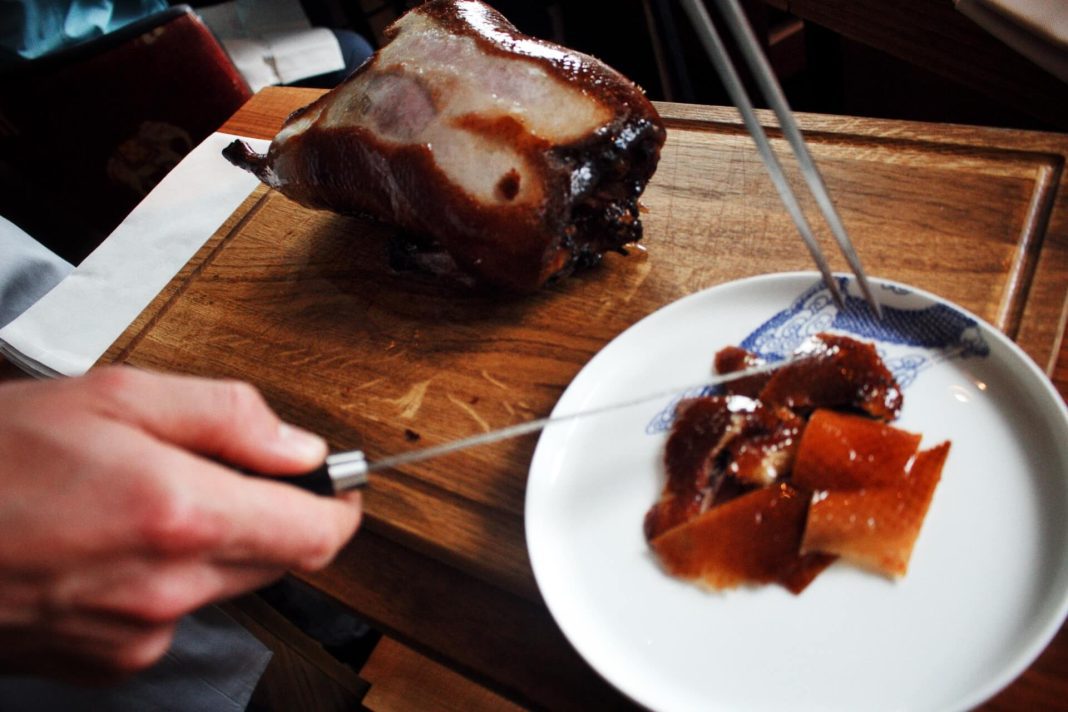

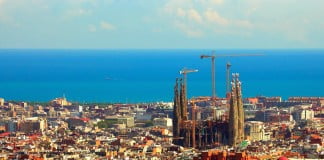
I would love to visit Berlin someday, and i’d probably gravitate to the tourist sites like Brandenburg Gate and the Berlin Wall but I loved your take on the neighborhoods. I enjoyed the “slice of life” and observational reporting you did on your experience walking through these areas of Berlin. I think it’s important for travelers to see how people really live in these cities.
Great article. For me, it read more like a chapter in a memoir. It told more than the typical where to go and what to see. You captured the feelings and nuances of the district and makes me want to skip the tourist spots and just head out to Kreuzberg.
I just left Berlin and your making me miss it. What a great city, and one where I could just walk around neighborhoods for hours… oh wait, I did. Kreuzberg was one I really enjoyed, and while I didn’t have Peking duck, I did discover the Markt Halle and found a variety of ethnic flavors all melting together under one roof. This won’t be the last time I’m in Berlin, you’ve given me a few ideas for next time
You really have quite the skill for finding unique places to eat. I’ve been to Berlin twice and never heard of Kreuzberg, so I enjoyed wandering the streets with you and getting to know it. I love how you describe it as never being, but always becoming – what a great way to describe such a multicultural place. I’m also a huge fan of Peking duck so count me in!
Another poetic love letter of yours and this time it is for Berlin! You make it sound like a magical place that I am yet to discover :DDDD No honestly, you stayed in the nicer end of Kreuzberg for sure. If you loved the microcosm of its Kiez mentality, I feel you’d also really like Prenzlauer Berg. It has lots of great cafes and quirky corners, a bit more laid back than Kreuzberg yet still affluent. Anyway, I do hope, you’ll reach out next time you come over to Berlin.
Carolin | Solo Travel Story
We visited Berlin last year and loved it. We did visit many of the main attractions and spent a little time in Kreuzberg but not really enough. In fact, we were all too aware that there is so much of Berlin that we didn’t see and need to explore further. We felt that the city was both sophisticated and grungy and we loved that. We are itching to return and next time we visit it will be for the vibe more than the sightseeing. It wouldn’t occur to us to visit Berlin for Peking Duck but are truly convinced that we should try it on our next visit. And sign us up for the Breakfast Club, where we can enjoy a decadent boozy morning!
i loved wandering around Kreuzberg with you. I could see the residents, hear the music, and feel the neighbourhood’s unique character. I love how you blend the reality with the imagination bringing your story to life. I have not been to Berlin, but will surely make a point of spending time here.
I’m not a huge fan of duck but your Peking Duck experience had me salivating. It sounds like a perfect meal to enjoy in this lovely hotel.
Loved the vibrant snapshot of Kreuzberg—music, culture, and even ducks! Makes me want to wander its streets and soak it all in.
What a great article!